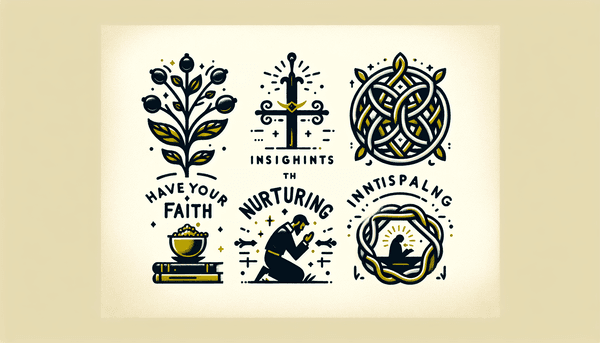Doubt and Faith Coexisting
The presence of doubt does not signify the absence of faith; rather, it is a natural aspect of the human condition. The Bible presents numerous instances where doubt and faith intersect. Even as the father of a demon-possessed boy cried out to Jesus, 'I do believe; help me overcome my unbelief!' (Mark 9:24), his plea reveals the tension between doubt and trust in divine power. Similarly, after the resurrection, some disciples worshipped Jesus, yet some doubted (Matthew 28:17). Such accounts demonstrate that doubt can coexist with faith and can lead to a deeper exploration and affirmation of belief. Believers are encouraged to seek God's assistance in navigating their uncertainties and to trust in His strength to bolster their faith (Psalm 73:26).
Approaching Prayer
Prayer can sometimes seem daunting, especially when one is unsure of what to say or ask for. The Bible encourages believers to bring all their concerns to God, emphasizing that prayer should be a reflection of one's innermost thoughts and needs. Jesus provided a template for prayer in what is commonly known as the Lord's Prayer (Matthew 6:9-13), which encompasses adoration, confession, thanksgiving, and supplication. Believers are urged to not be anxious and to present their requests to God with gratitude (Philippians 4:6). Whether it is seeking guidance, expressing gratitude, or praying for others, the act of prayer is a deeply personal conversation with the Creator, and one that bears no strict formula. It serves as a conduit for building a stronger relationship with God and finding solace in His presence.






